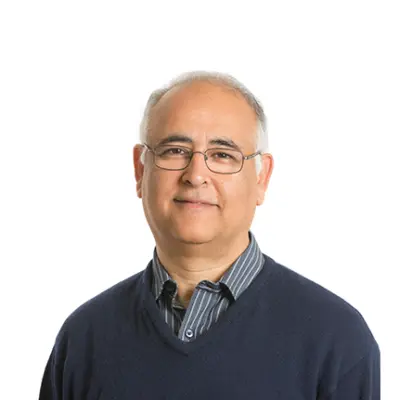During your procedure you will be given sedation. It is important that you arrange for someone to drive you home following your procedure. You are not permitted, by law, to drive yourself. For safety reasons, if you are travelling on public transport, or in a taxi, please arrange for a support person to travel with you.
ERCP
Available at
2 specialists
What is a ERCP?
ERCP (Endoscopic Retrograde Cholangiopancreatography) is a technique used to study the ducts (drainage routes) of the gall bladder, pancreas and liver (bile ducts). ERCP is performed with a duodenoscope; along, thin, flexible tube-like instrument. A duodenoscope is passed through the mouth, oesophagus and stomach into the duodenum (the first part of the small intestine). The duodenoscope enables the common opening to the bile and pancreas ducts to be visually identified. A catheter (narrow plastic tube) is passed through the internal channel of the duodenoscope to inject x-ray contrast (dye) into the bile and pancreatic ducts. X-rays enable the doctor to see the images of the ducts and to photograph them.
What should I expect?
ERCP is performed in a private examination room. You will be required to lie on your side throughout the procedure, and a small mouthpiece will be placed between your teeth before your specialist gently places the duodenoscope into your mouth.
While carefully advancing it towards the duodenum, your stomach is filled with air to identify the way forward. This may cause a sensation of fullness in the abdomen. Once the duodenoscope is correctly situated, it remains stationary while the doctor performs the ERCP using tiny instruments that go through the internal channel.
X-ray contrast will be injected into the bile and pancreatic ducts and x-ray pictures will be taken.
ERCP will be performed with intravenous sedation and pain relief to keep you comfortable throughout. A small needle will be placed, usually into the back of your hand , through which the sedative injection is given.
This is NOT a general anaesthetic and you will NOT be completely asleep during the procedure, but you will be relaxed and the medication may make you forget what has happened.
If a blockage of the bile duct is seen, a small cut (sphincterotomy) at the lower end of it may be made to aid the flow of bile, or the removal of stones.
Occasionally blocked ducts require the placement of a small hollow plastic tube (stent) inside to encourage internal drainage. On rare occasions the instruments will be unable to enter the bile or pancreatic ducts, and in this cause ERCP will not be possible.
Preparation
Your stomach and duodenum must be empty for a safe and thorough ERCP examination.
- Six hours before your appointment have NOTHING to eat.
- Three hours before your appointment, have nothing to drink (you can take the last of your medication with a mouthful of water).
- DO NOT take antacids.
You will be asked to come in at least one hour before your procedure. This is for admission purposes which may include:
- Blood tests.
- Medical assessment.
- Educational video on ERCP.
If you have any questions or are uncertain about the preparation or experience any problems while following our instructions please contact Allevia Endoscopy, or, if after hours, the Clinical Nurse Advisor on 09 623 5700.
Sedation is generally used during the procedure. It is important that you do not drive or operate machinery for 12 hours after your procedure. Please arrange for someone to drive you home afterwards. You are not permitted, by law, to drive yourself. For safety reasons, if you are travelling on public transport, or in a taxi, please arrange for a support person to travel with you.
Following an ERCP you may be required to stay in hospital. In some cases you will be discharged after 4 hours, however this is on the advice of your specialist. Please prepare for an overnight stay.
You may eat and drink 4 - 6 hours after the procedure, depending on your recovery time and Specialist's instructions.
Things you will need to bring to your appointment:
- If you suffer from angina or asthma please bring your GTN spray or inhalers with you.
- If you are an insulin dependent diabetic please bring your insulin with you.
In case of overnight admission please bring an overnight bag.
Please ensure that you have the relevant information from your consultant regarding your medication and necessary blood tests (especially for diabetics or if you are using blood thinning medication).
Your informed consent
As part of the consent process for your ERCP procedure, we would like you to watch the below video. The video outlines essential information to help you prepare for and understand what you can expect for this procedure. The information also covers the risks and complications associated with an ERCP. By watching this video, it will form part of your informed consent.
Risks
The main complication of ERCP is inflammation of the pancreas (pancreatitis) caused by the injection of the x-ray contrast. This occurs in approximately 5% of people and may cause abdominal discomfort requiring hospitalisation.
In rare instances pancreatitis can become serious and mean a lengthy stay in hospital, surgery and even death. When a sphincterotomy is performed at the time of ERCP.
I% - 3% of patients may develop significant bleeding and/or bowel perforation. On rare occasions these can require surgery. Other complications can include infection of the bile duct and incomplete removal of stones.
Payment Details
- We advise you to apply to your insurance company for prior approval before your admission.
- Bring your prior approval number or letter to your appointment.
- Your account will be given to you on completion of your examination to forward to your insurance company for settlement.
- If you do not wish to apply for prior approval or do not have medical insurance we will calculate an estimated total cost of your procedure, which will be charged on admission.
- On completion of your stay your account will be processed and the amount adjusted accordingly. The total amount charged varies from patient to patient and any extra charges are to be settled on discharge.


































